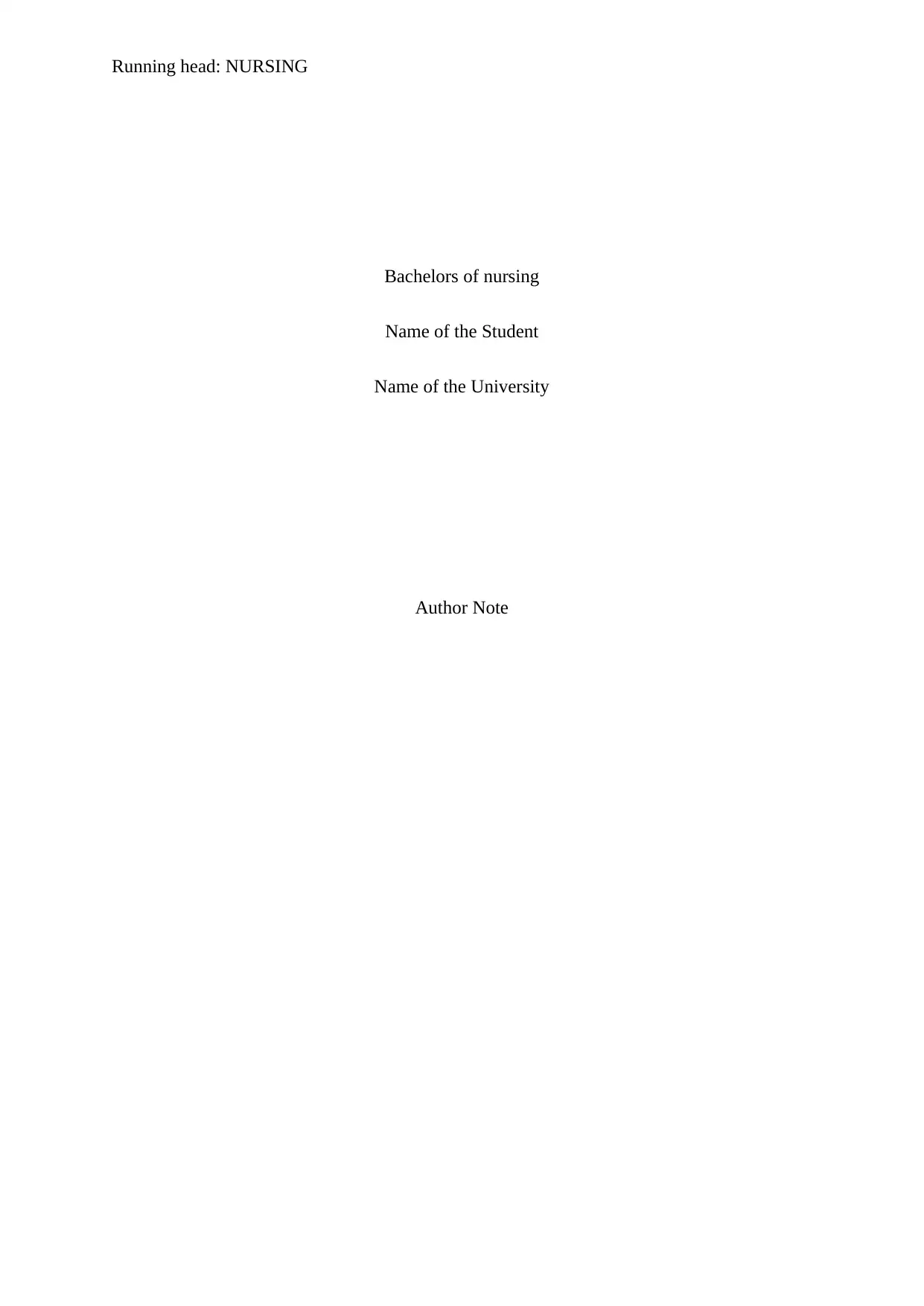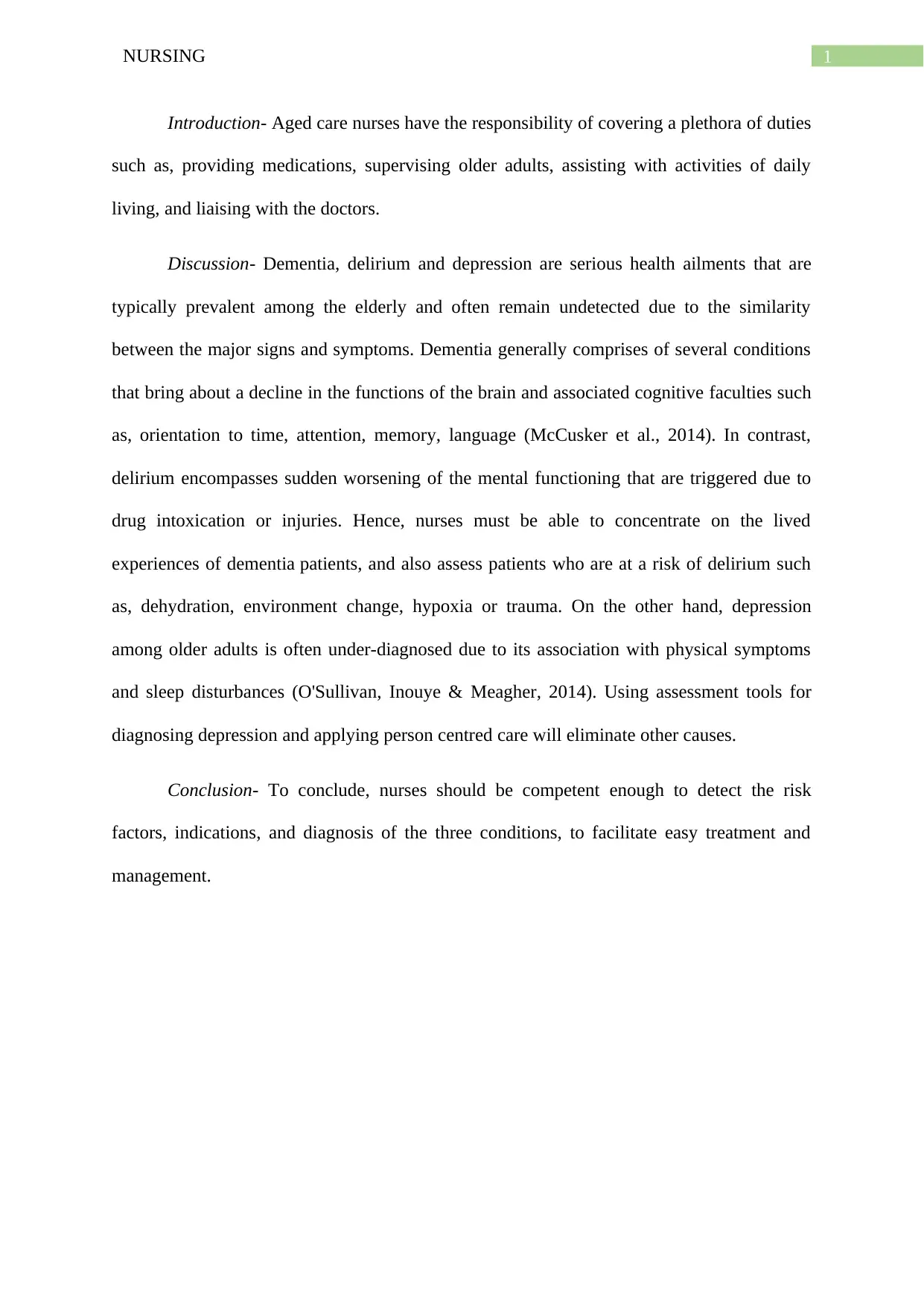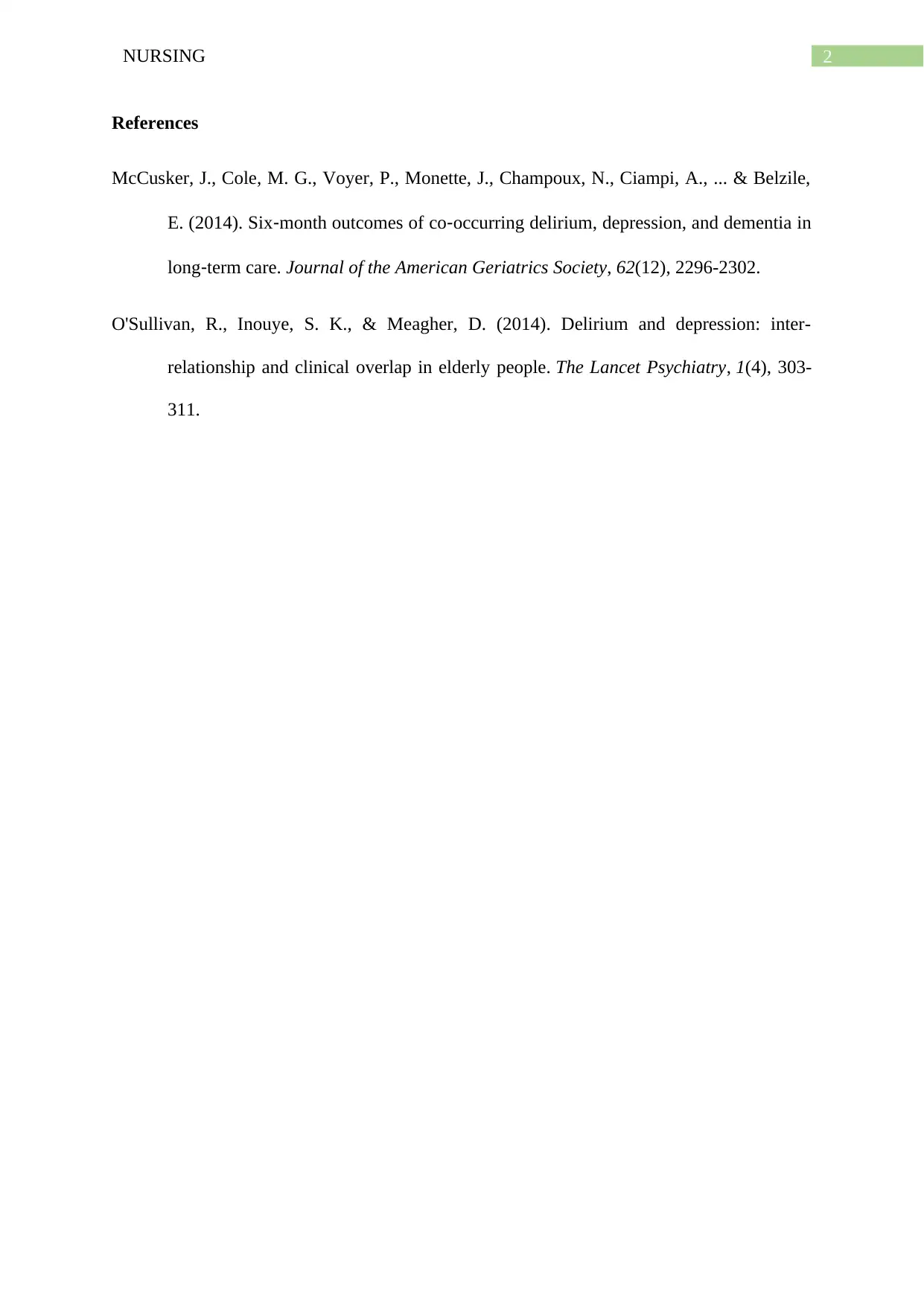Nursing Perspectives: Dementia, Delirium, and Depression in Aged Care
VerifiedAdded on 2023/04/24
|3
|372
|170
Essay
AI Summary
This essay discusses the critical role of aged care nurses in managing dementia, delirium, and depression among elderly patients. It highlights that nurses are responsible for various duties, including medication administration, supervision, assisting with daily living activities, and communication with doctors. The essay emphasizes the importance of nurses being able to differentiate between dementia, delirium, and depression, as these conditions often present with similar symptoms. Dementia involves a decline in cognitive functions, while delirium is characterized by a sudden worsening of mental functioning, and depression is often underdiagnosed in older adults. The essay concludes that nurses should be competent in detecting risk factors, indications, and diagnoses of these conditions to facilitate effective treatment and management. Desklib offers this assignment solution along with a wealth of resources including past papers and solved assignments for nursing students.
1 out of 3










![[object Object]](/_next/static/media/star-bottom.7253800d.svg)